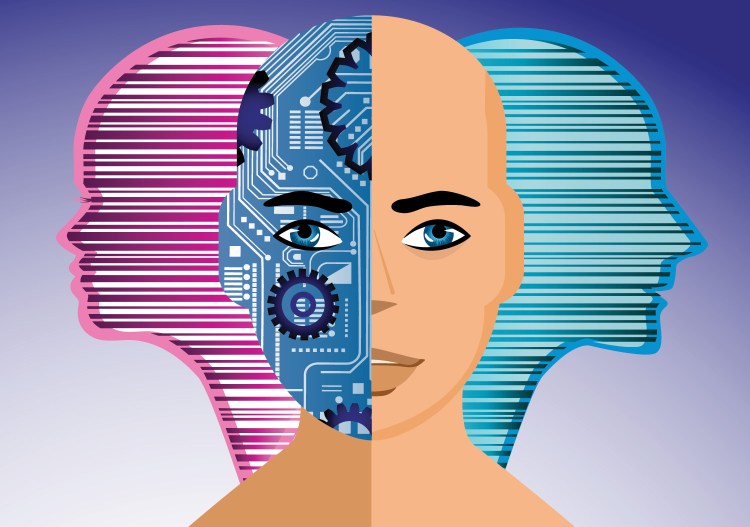In most conversations of tech diversity, many point out the lack of women in the industry as a major problem — and rightfully so, considering that women continue to be outnumbered by their male counterparts in many sectors, especially women of color.
Unfortunately, these conversations favor cisgender women as the critical component of true gender diversity, leaving trans and gender-nonconforming people completely out of the equation.
Whether you know it or not, trans people are very present in tech and utilize the medium to insert themselves into larger discussions of gender and diversity. From making videos to making video games, here are four ways transgender people are expanding the concept of diversity in technology:
Empowering videos and hashtags
YouTube is filled with trans people of all ages, backgrounds, and geographical locations, sharing their stories of transition and have been since the birth of the site in 2005. With the advent of Twitter, trans people have a new way of connecting and thanks to author and award-winning activist Janet Mock, can do so using the Twitter hashtag #girlslikeus. Mock states that she created the hashtag for trans women that were “looking for role models, becoming role models, wanting to be heard and hoping to make a difference.”
Since it’s first use by Mock, the hashtag has been adopted by numbers of trans women across the globe as an empowering source of community building. Other hashtag creators have followed suit and have created terms such as #tgirlsrock and the controversial but nonetheless unifying, #fuckcispeople.
Personalized gaming
Not just consumers of tech, trans people are visible creators who are producing projects that showcase tech savvy and a deep-seated interest in gender justice. Indie game developer and critic Mattie Brice, for example, created Mainichi, an RPG game based on her experiences of being a trans woman.
When playing Mainichi, you are offered a glimpse into the life of a trans woman as you play as Mattie, and have to address questions such as, “Is she a boy or a girl?” from strangers on the street. Brice’s work is part of a bigger community of queer gamers who present a different voice in the gender diversity debate. Many who can be heard at the upcoming Queerness and Games Conference, where Brice is one of the organizers.
Voices like Brice’s are needed in the gaming industry where trans women are subjected to harassment and discrimination just as non trans women are. The recent public misgendering of Laura Kate Dale at Eurogamer illuminates this point as she received death and rape threats after taking to Twitter to share her story — an unfortunate experience other women in tech have undergone for simply standing up.
Collective hacking
Transgender developers are also producing projects meant for real-life usability, such as TransResource.us, a web and mobile app that searches for transgender services according to zip code, and Dottify.me, a social media application for trans and gender-variant people that visually maps the community while protecting privacy. Both game changing projects were recently created at last month’s inaugural Trans*H4CK, a hackathon for transgender empowerment.
The success of Trans*H4CK demonstrated an urgency of tech based initiatives designed to better the trans community as well as exposed a previously overlooked market of trans consumers who want accessible products that speak to their lives. Trans*H4CK plans to tour nationally in 2014 starting with a stop in New York City.
Business ownership
Although many in the tech industry argue that entrepreneurship is one way to encourage economic mobility, myself included, there aren’t yet many trans-led tech based businesses or startups; but the ones that do exist are making important waves in the tech industry.
Take PalominoDB for example, a database architect firm founded by trans entrepreneur Laine Campbell. Under Campbell’s leadership, PalominoDB has successfully managed the databases of a number of prestigious clients and was most recently in charge of running the front-end databases of President Obama’s reelection campaign. Campbell was also recognized as a Female Founder to Watch by Forbes Magazine.
Transgender people are making incredible waves in tech because of their presence and work that disrupts gender binaries. Bottom line: If tech diversity enthusiasts want to continue to expand the gender divide, then we have to begin to look towards the trans community as necessary investments in the broadest sense of the term. This will provide a new set of tools, skill sets, and perspectives on gender that both the tech industry and the world needs.
Kortney Ryan Ziegler is an award-winning filmmaker, visual artist, writer, and scholar based in Oakland, California. His artistic and academic work focuses on queer/trans issues, body image, racialized sexualities, gender, performance, and black queer theory. Ziegler is also the first person in history to receive the PhD of African American Studies from Northwestern University.


